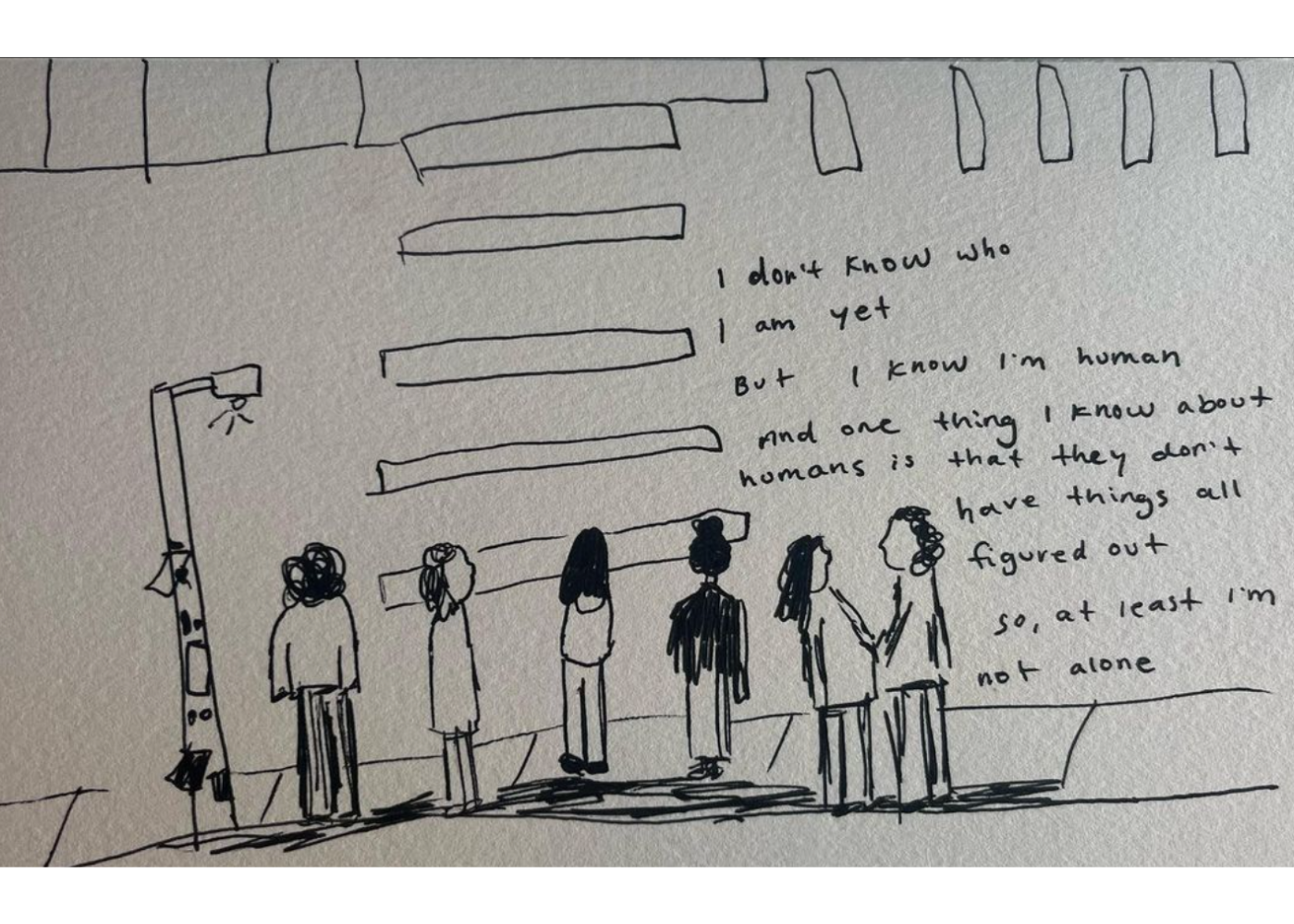Hi! Welcome to An Unraveling! If you are new here, check out some previous posts like this or this or learn more here. Follow along and let’s be friends IRL.

Typically, whenever I hear the word "self-compassion," I have to fight the immediate urge to roll my eyes.
I think it’s because I didn’t really understand it until recently. I’ve just constantly heard that it was the answer to all my woes and in moments of crises, I should “speak to myself as one would a friend.”
I don’t know about you, but when I’m in the middle of a shame spiral or racing against a deadline, the last thing I want to do is pause and write myself a letter from a friend's perspective.
Don’t get me wrong—I'm sure this can be helpful. But advice like this sometimes feels shallow. More often than I’d like to admit, I find myself retorting the self-help books with a frustrated gag of "Ugh, you just don’t get it."
So when I was recently asked in a seminar to explain self-compassion more in depth, I froze. I tried recalling bits of what I had read but then honestly answered, “This is something I’m still learning about—can I get back to you?” After which I went home and promptly read three books on the subject.
It turns out, I had misjudged self-compassion. It’s not a superficial response to weakness but a powerful tool for addressing shame and moments of doubt.
Dr. Kristin Neff has pioneered the field of self-compassion and defines it as,
“The process of turning compassion inward. We’re kind and understanding rather than harshly self-critical when we fail, make mistakes or feel inadequate.”
It consists of three components: mindfulness, common humanity and kindness. We can learn how to remain present in the midst of a painful moment and embrace ourselves with a caring response, remembering that hardship is part of the human experience.
While I had read all this before, it recently struck a new chord - particularly the part on our shared humanity.
Common humanity is,
“The understanding that the emotions we experience- sadness, frustration, hurt, confusion, despair- are all a part of the human experience. It’s the component that tells us that what we feel and experience is normal and to be expected…it helps us remember that we are not alone and that others struggle as well.” (Dr. Karen Bluth)
This is so important because it helps us remain connected to others. It reminds us that in spite of this moment, we still belong.
For example, in the aftermath of feeling excluded, or getting yelled at by our boss, or a fight with a friend, or the inability to afford something, it’s easy to feel isolated in the experience. We quickly and subconsciously jump to, “I am the only person to ever experience this and feel this way.” But when we remember that others have faced similar challenges and felt the same way, it eases the sting a little. We’re not alone in our suffering.
And even when no human seems to understand, we can take comfort in knowing that Jesus experienced suffering too.
When God took on flesh, not only did he suffer but He experienced every single emotion under the sun. So on the days where I feel inadequate, lonely, or angry, I can remember that Jesus did too. He gets it. He gets us. We are all in this together.
Recognizing our shared humanity—that "everyone feels this way at some point"—makes it easier to treat ourselves with kindness. We’re not alone, and we don’t need to have everything figured out. We can lean on others, and we can also lean on ourselves.
So the next time I bomb a presentation and catch myself ruminating on the car ride home, I can take a deep breath and do these three things:
Coming back into the present moment, I can notice the physical sensations in my body and ask myself some questions. What is the story I’m telling myself right now? What am I feeling? Can I name this emotion?
For example, “Oh, my heart is racing and I keep replaying the moment when I fumbled my words, I feel embarrassed. This is embarrassment.”
Remember our common humanity
Once I name the emotion, I can remind myself that this is a normal part of the human experience. Everyone will feel this way at some point in their lives. I am not alone.
Meet ourselves with care.
After this, I can try to be kind to myself. For example, I can tell myself, “You know what? You tried your best. Chances are nobody thought twice about it. You worked really hard and the rest of your presentation was good.”
If we are unable to do this (been there), we can support ourselves with compassionate touch. Placing a hand over our heart, rubbing our arm, or gently cupping our cheek can release oxytocin, helping to calm our nervous systems.
I know all of this is easier said than done. Like most things, self-compassion is a process—one we get to revisit throughout our lives, giving ourselves grace when we fall short. The good news is that we can grow in it. The more we practice it during difficult moments, the more it becomes second nature.
As we cultivate self-compassion, we also strengthen our connection to others. Recognizing our shared humanity—that everyone struggles—makes it a little easier to be kind to ourselves, knowing we’re not alone in the journey.
We’re all in this together.
There's actually a quiz that can help us assess our current level of self-compassion. You can take it Here.
The good news is that our self-compassion score isn’t fixed but constantly evolving. When I first took this test, I scored a 3.2. A year later, my score had risen to 4.1. While I still have a long way to go, it's reassuring to see progress along the way.
What was your most recent “failure?” Or the most recent time you kicked yourself for saying or doing something “stupid?” How did you react? How might self-compassion have changed your response? What can you tell yourself now?
Ask the Holy Spirit to bring to mind an area of your life where you need to extend more compassion to yourself. In what ways are you being too hard on yourself? Where does this stem from? What does She want to say about it?
Part of the kindness component of self-compassion is a greater sense of fulfillment. “Self-kindness means being brave enough and respecting yourself enough to stand up for yourself and explore.” Listen to this meditation and then spend some time with what came up.
I would love to hear from you! What are your thoughts on all of this? Comment below or message me.
Housekeeping
ℹ️ Read more about An Unraveling here.
⭐️ You can expect weekly posts delivered straight to your inbox on Sunday mornings when you subscribe.
💲 By upgrading to a paid subscription, you'll gain access to additional perks such as guest essays, interviews, and the Monthly Resource Roundup.
💌 I would love to hear from you! Use the comment feature at the bottom of this page or reply via email to start a conversation.
🗣 If somebody comes to mind as you read this, feel free to share!
🎨 Art by @jordanklancaster.








